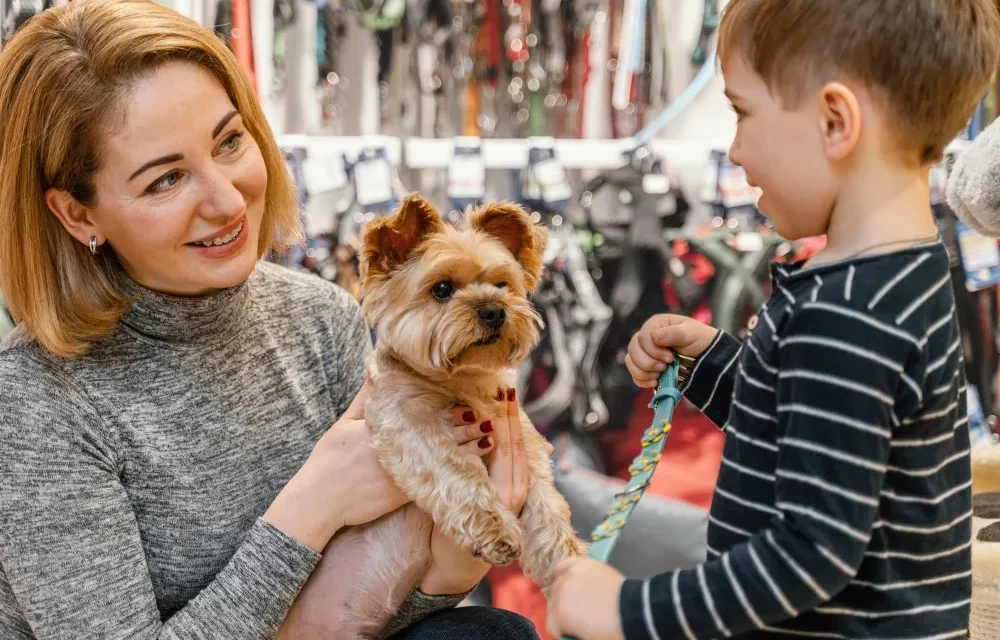Bringing a new puppy into your life is a joyful and momentous occasion. This tiny ball of fluff will quickly become a cherished family member. However, the decision to buy a puppy should never be taken lightly. It’s a commitment that can last 10 to 15 years, and ensuring you get a healthy, well-adjusted dog from a responsible source is paramount.
To protect yourself, the puppy, and to avoid supporting unethical breeding, you need to ask the right questions. Think of this list as your Puppy Buyer’s Essential Checklist.
Questions About the Puppy’s Health and Care
These questions are non-negotiable and directly impact your puppy’s well-being and future vet bills.
1. “What age are the puppies now, and when can they go home?”
A reputable breeder will not allow a puppy to leave its mother and littermates before 8 weeks of age. This time is crucial for their social and emotional development. If the breeder offers to sell you a puppy younger than 8 weeks, walk away.
2. “Can I see the mother (Dam) of the puppies?”
Always insist on seeing the mother and observing her interaction with the puppies. The mother’s temperament is a strong indicator of the puppy’s future personality. If the breeder makes excuses for why you can’t see the mother or shows you a “stand-in,” this is a massive red flag.
3. “Have the puppies been vaccinated and dewormed? Can I see the records?”
Puppies should have their initial veterinary check, first vaccinations, and be on a regular deworming schedule. A responsible breeder will provide you with a full, signed veterinary record or a “puppy passport.”
4. “Are the puppies microchipped?”
In many places, it is a legal requirement for puppies to be microchipped before they are sold. The breeder should register the chip, and you will be responsible for officially transferring the details into your name upon purchase.
5. “What specific food are the puppies currently eating, and how often?”
To prevent an upset stomach, you must continue the puppy’s current diet for the first few days before gradually transitioning to your preferred food. A good breeder will often provide a small bag of their current food and a feeding schedule.
Questions About the Parents’ Health and Breeding History
Understanding the parents’ history is vital, especially for purebred dogs prone to certain genetic conditions. This helps predict your puppy’s long-term health.
6. “Have the mother and father (Sire) been screened for breed-specific hereditary conditions?”
For many breeds (like Labrador Retrievers, German Shepherds, etc.), health tests for conditions such as hip and elbow dysplasia, certain eye diseases, or heart issues are standard practice. Ask to see the official health clearance certificates, not just a vet’s letter.
Also Read: German Shepherd and Labrador Mix
7. “What is the temperament and health of the father?”
While the father may not be on-site, a responsible breeder should know his health history and temperament, often providing pictures and documentation.
8. “How many litters has the mother had, and what is her age?”
Excessive breeding is a sign of a profit-driven operation. Reputable organisations often recommend a female dog should have no more than four litters in her lifetime and should not be bred before a certain age.
Questions About Socialisation and Environment
Early life experiences shape your puppy’s personality and behavior more than almost anything else.
9. “Where were the puppies born and raised?”
You should visit the puppies at the breeder’s home where they were born and raised. This allows you to check for a clean, safe, and stimulating environment. Never agree to meet in a neutral location like a parking lot, this is a common tactic of puppy farms/mills.
10. “What social experiences have the puppies had so far?”
Between 3 and 16 weeks, puppies have a critical socialisation period. The breeder should be introducing them to various sights, sounds (like vacuums, doorbells), surfaces, and different people (men, women, children). This early exposure is essential for creating a confident, well-adjusted dog.
11. “How would you describe the individual personalities of the puppies?”
A caring breeder will have spent enough time with the litter to know their individual traits, which one is the most outgoing, the most shy, the biggest mischief-maker, etc. They should be able to help match the right puppy to your lifestyle.
Questions About the Sale and Aftercare
A reputable breeder’s responsibility doesn’t end when you walk out the door. They will show an interest in the puppy’s life going forward.
12. “Is there a formal written contract of sale?”
The contract should cover all terms of the sale, health guarantees (often a window for a vet check), and what happens if a serious, inherited health condition is found later.
13. “Do you require the puppy to be spayed or neutered?”
Many ethical breeders sell puppies on a “limited registration” or require a spay/neuter clause in their contract to prevent unplanned or irresponsible breeding.
14. “What is your policy if I can no longer keep the dog at any point?”
A truly responsible breeder will require or offer to take the dog back at any stage of its life if you can no longer care for it. They feel a lifetime responsibility for the dogs they produce.
15. “Can you provide references from other puppy buyers or your veterinarian?”
A transparent and ethical breeder should be happy to provide contact information for people who have purchased a puppy from them previously, or the contact details for their practicing veterinarian.
Before You Go
Remember, a reputable breeder will be interviewing you just as much as you are interviewing them! They care deeply about where their puppies are going. If a breeder avoids any of these questions, pressures you, or offers a deal that seems too good to be true, walk away. Your diligence ensures a happy, healthy start for your new best friend.




